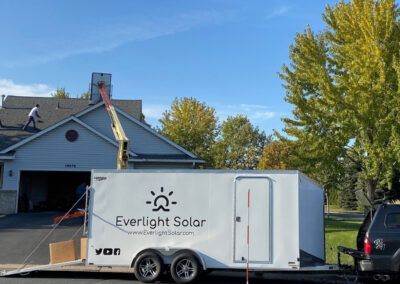
Concrete contractors in North Carolina must be insured, not only should they provide high-quality work. They should be bonded and insured, so you can rest easy that your money is safe. Additionally, concrete-related construction is easy because of the state’s low humidity levels and mild temperatures. Here is a list North Carolina concrete contractors. Find out more information about hiring a contractor in concrete. These are some tips to help you make an informed decision before you finalize your hiring of a concrete contractor.
Concrete contractors must have experience
Concrete contractors in North Carolina may need experience. A bachelor's degree might not be necessary. A formal apprenticeship can be obtained through technical schools or unions. These programs will give you specific skills and experience that can be used when you are ready for work. This type training usually takes between three to four year and includes both classroom instruction and hands-on experience. It is also beneficial to be a member of the Construction Industry Association (CIA).
North Carolina concrete contractors should be able provide references from past clients. Professional certifications are another important thing to look for in contractors. Some certifications are mandatory, while others can be used as a way for you to stand out from the rest. You should choose the right certifications for the type of concrete work you are planning to do. This information will assist you in making an informed decision and giving you a better understanding of how to choose a concrete contractor. It is vital to get the certifications you need in order for your success.

Low humidity
Low humidity can not only cause health problems but also make it more difficult to breathe. Cold weather is likely to cause cracked lips and sore throats. Sometimes you might even experience nosebleeds. This problem can be especially severe in the winter, spring, and early summer when humidity is low. Low humidity can also be indicated by static electricity. It is possible to avoid this problem by reading up on how to reduce it.
Consider the climate and season when looking for a North Carolina concrete contractor. While the summer is ideal for construction projects, managers and crews want to take advantage of longer days and warmer weather. Even though there are no concrete problems, extreme heat can cause serious problems. If the temperatures reach 90 degrees or higher, the mix and installation process may need to be modified to prevent deterioration.
Mild temperatures
Concrete contractors may find springtime busy, even though it's a great time of year for concrete projects. Fulford & Jones, Inc. understands this problem and works with customers to minimize any scheduling conflicts. These factors are crucial for producing high-quality concrete. They prefer mild temperatures and low levels of humidity. For the best concrete projects, use low humidity and low temperature techniques.
Liability insurance
You will need general liability insurance if you are a concrete contractor. This insurance protects you in case you're sued for an accident or injury on the job. Construction sites can be hazardous and concrete equipment can cause injury. If someone gets injured while working on your project, you may be liable for their medical bills and wage replacement. By carrying liability insurance, you'll be able to avoid this.

Along with liability insurance, you will need workers' comp insurance. Workers' compensation insurance, which is required in most countries, is essential. In some cases, employee practice insurance is a good idea. This can help to cover defense costs as well as settlements. Liability insurance for concrete contractors in North Carolina can be tricky, but it's worth it to protect yourself.
FAQ
Can I cancel my agreement at any time?
Yes. However, you must notify the court within 14 days of signing the contract. You can usually terminate your contract by giving written notice up to 7 working days before the end date specified in your contract. If you do not give enough notice, the contractor may still owe you money for work that has been completed.
Are there other things I should consider?
Yes. Check your local laws to see what types of projects are allowed and what conditions must be met. Some states require that you obtain council approval to build. Others state that you need only notify them of the plans. For more information, consult your local authorities.
What happens if one side doesn't agree to the deal?
Failure to keep your promises can result in the law permitting the other party to sue you and treat your promise as null. Damages include the amount owed plus interest, court costs, and legal fees.
Statistics
- (3) The contracting officer may provide for a contract price adjustment based solely on a percentage rate determined by the contracting officer using a published economic indicator incorporated into the solicitation and resulting contract. (acquisition.gov)
- Reasonable late fees go up to 25% per year on unpaid sums. (lawdepot.com)
- (v) Place or places of performance of the prime contract and first-tier subcontracts estimated at $10 million or more, if known. (acquisition.gov)
- (1) Except as provided in paragraphs (a)(4) and (a)(8) of this section, if the estimated amount of the contract or subcontract is $10 million or more, the contracting officer shall request clearance from the appropriate OFCCP regional office before- (acquisition.gov)
- (1) Ascertain the extent to that offers are based on the payment of overtime and shift premiums; and (2) Negotiate contract prices or estimated costs without these premiums or obtain the requirement from other sources. (acquisition.gov)
External Links
How To
What should a contract of service include?
Any business relationship requires a Service Agreement. It sets out what you expect from one another and how you intend to achieve these expectations. The SA also describes when and how you expect the other side to meet its contractual obligations.
The key elements of a successful SA are:
-
Both parties will agree to the scope of work.
-
Information about payment terms, including the start and end dates for delivery of goods/services.
-
An agreed price for the project.
-
Additional costs, such as VAT, etc.
-
Whether there is anything else that needs to be discussed.
-
Who is responsible if the job goes wrong?
-
How disputes will be settled
-
What happens if one party breaches the contract.
-
What happens in the event of a dispute.
-
When will the contract become effective?
-
What happens when one of the parties doesn't perform?
-
How long can you wait to pay invoices
-
Who pays for things such as travel expenses?
-
Where the money comes.
-
What happens if the client decides to change his mind about the project.
-
What happens when the supplier doesn’t show up.
-
Who has access to the site during construction?
-
What happens when the customer cancels a project?
-
What happens if a product is not as described?
-
What happens if the manufacturer refuses parts?
-
What happens if the equipment is damaged?
-
What happens if the project is delayed?
-
What happens if the work isn't completed within the agreed timescale?
-
What happens to the project if it isn't up-to-standard?
-
What happens if the cost exceeds?
-
What happens when the materials are not delivered in time?
-
What happens if the material arrives damaged?
-
What happens if products do not meet the standards?
-
What happens if you cancel the job before it is complete?
-
What happens if the company goes bust.